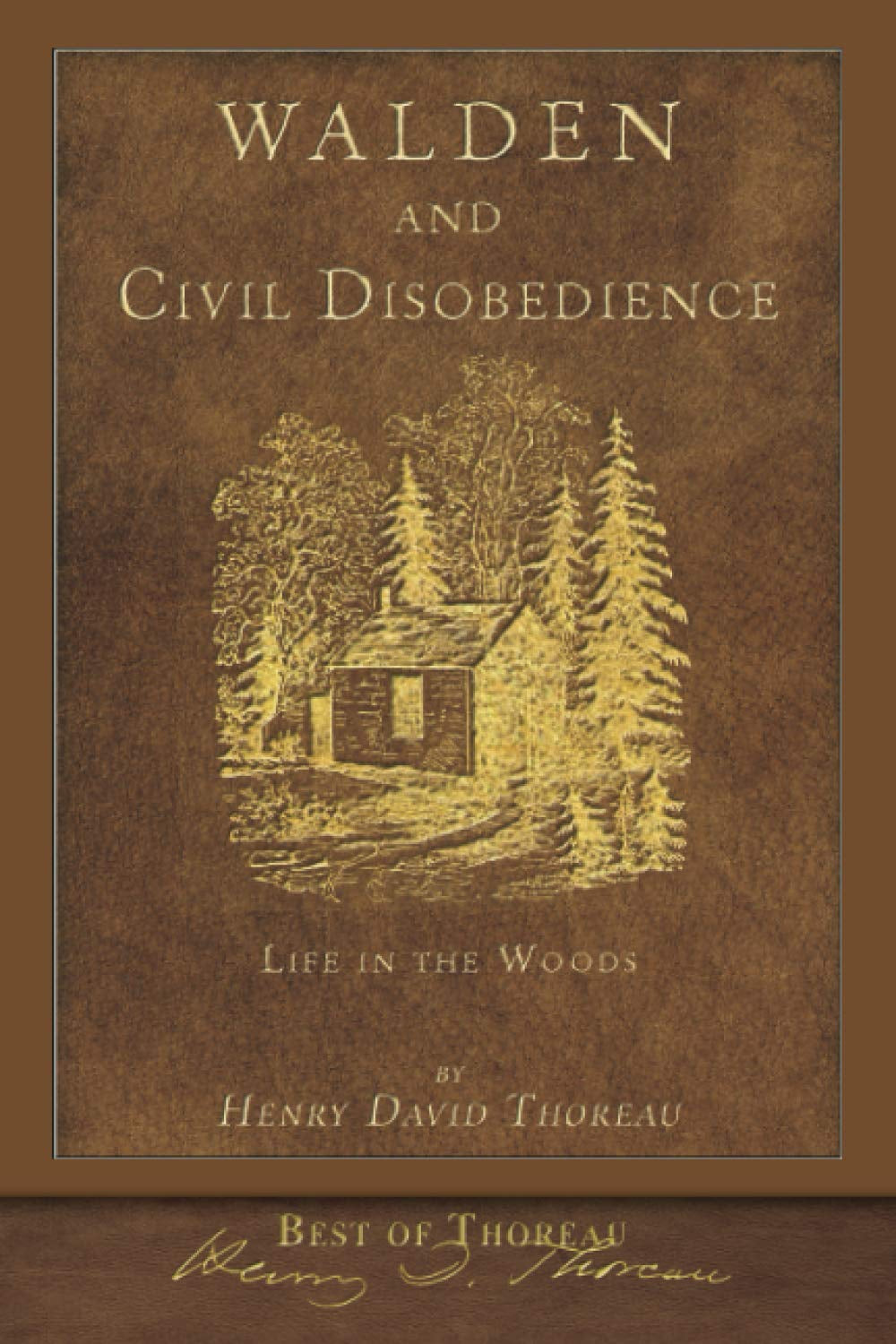Walden and Civil Disobedience By Henry David Thoreau
Walden and Civil Disobedience By Henry David Thoreau
Regular price
$26.80 USD
Regular price
$0.00 USD
Sale price
$26.80 USD
Unit price
per
Tax included.
Shipping calculated at checkout.
Couldn't load pickup availability
A nice edition of the classic Walden and Civil Disobedience with 32 photographs.
Walden, published in 1854, is a reflection upon simple living in natural surroundings. The work is part personal declaration of independence, social experiment, voyage of spiritual discovery, satire, and a manual for self-reliance. It details Thoreau's experiences over the course of two years in a cabin he built near Walden Pond amidst woodland owned by his friend Ralph Waldo Emerson, near Concord, Massachusetts. Thoreau used this time to write his first book, A Week on the Concord and Merrimack Rivers. For Walden, Thoreau compresses this time into a single calendar year and uses passages of four seasons to symbolize human development. Resistance to Civil Government, called Civil Disobedience for short, is an essay he first published in 1849. Thoreau argues that individuals should not permit governments to overrule or atrophy their consciences, and that they have a duty to avoid allowing such acquiescence to enable the government to make them the agents of injustice. Thoreau was motivated in part by his disgust with slavery and the Mexican–American War.
Walden, published in 1854, is a reflection upon simple living in natural surroundings. The work is part personal declaration of independence, social experiment, voyage of spiritual discovery, satire, and a manual for self-reliance. It details Thoreau's experiences over the course of two years in a cabin he built near Walden Pond amidst woodland owned by his friend Ralph Waldo Emerson, near Concord, Massachusetts. Thoreau used this time to write his first book, A Week on the Concord and Merrimack Rivers. For Walden, Thoreau compresses this time into a single calendar year and uses passages of four seasons to symbolize human development. Resistance to Civil Government, called Civil Disobedience for short, is an essay he first published in 1849. Thoreau argues that individuals should not permit governments to overrule or atrophy their consciences, and that they have a duty to avoid allowing such acquiescence to enable the government to make them the agents of injustice. Thoreau was motivated in part by his disgust with slavery and the Mexican–American War.






